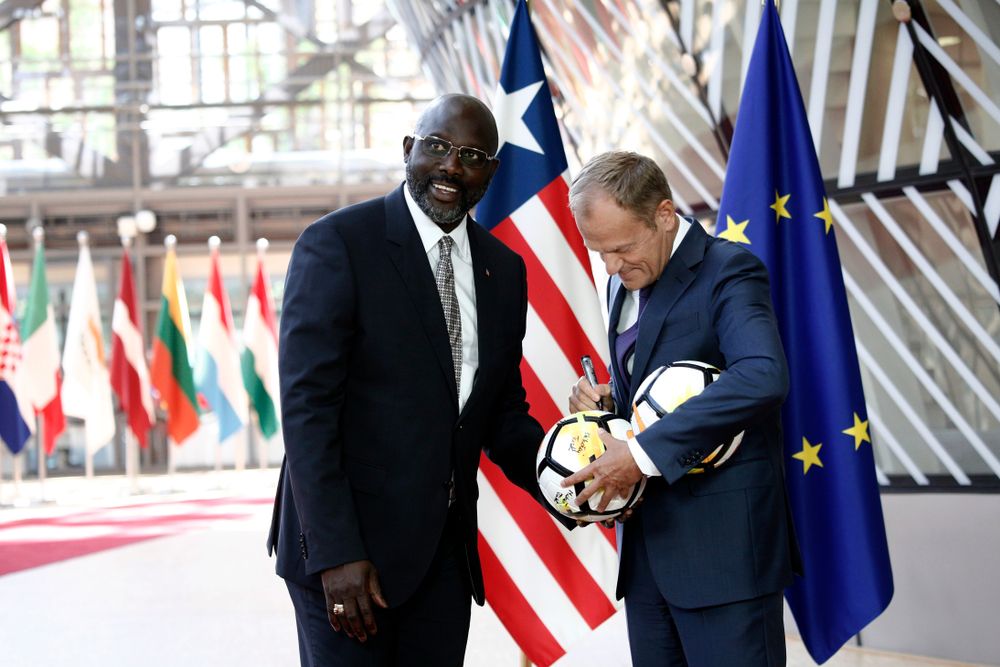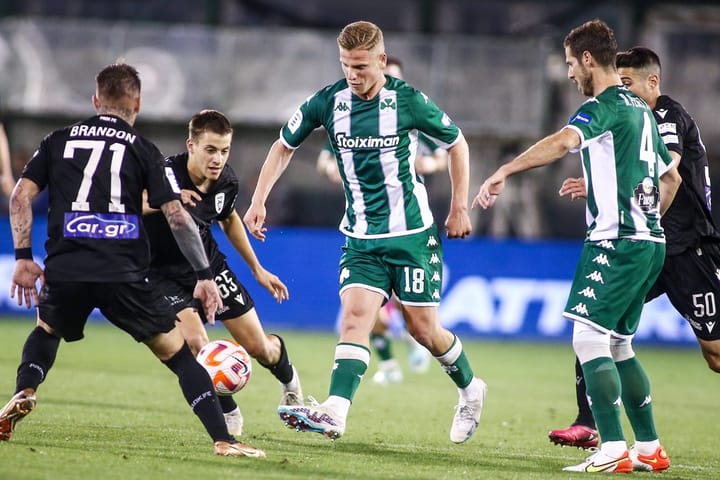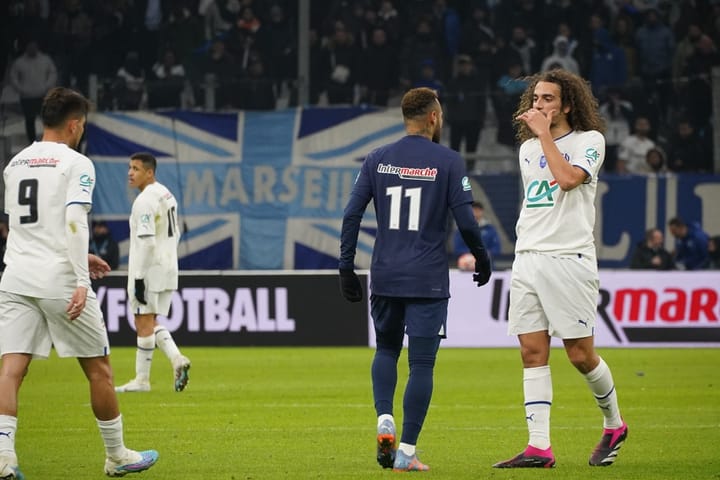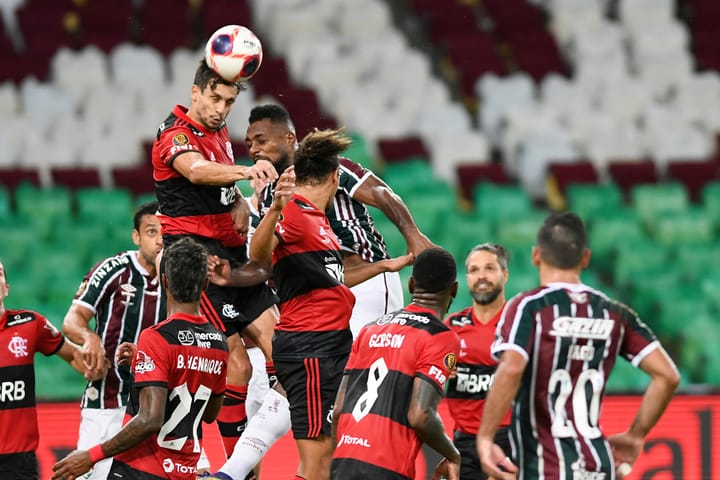From the Pitch to Politics: How African Soccer Stars Made Their Mark on and off the Pitch
In this article, we'll discuss and examine the legacy of African soccer players turned politicians and the potential for soccer to effect positive change in African societies.

In Africa, soccer is more than just a sport. It is a way of life and a cultural phenomenon that has the power to unite people across the continent. For many Africans, soccer players are national heroes whose achievements on the field have made history. However, some of these players have gone beyond their success in soccer to make an impact in politics, a field that is often viewed as incompatible with sports.
Legendary Dutch footballer Ruud Gullit once famously said, "Politics and football don't mix." But is this true? In this article, we will explore the careers of African soccer players who successfully transitioned to politics, using their platform to effect positive change in their countries. From Cameroon's Roger Milla to Zambia's Kalusha Bwalya and Liberia's George Weah, these players have become icons for younger generations, leaving behind a lasting legacy both on and off the field. While their political engagement has been praised by many, it has also been criticized by others. Still, nonetheless, it is an opportunity to bring about real change in society.
George Weah
One of the most fascinating aspects of African footballers is their ability to transition from successful football careers to politics. These players have leveraged their popularity, influence, and leadership skills to make an impact in their countries beyond the pitch, and one such player is George Weah. George Weah is considered one of the greatest African football players of all time, having received numerous accolades throughout his career. In 1995, he was named FIFA World Player of the Year and won the Ballon d'Or, making him the first and only player to achieve this while representing an African nation. He was also awarded the African Footballer of the Year three times, in 1989, 1994, and 1995, and was named African Player of the Century in 1996. Weah's career spanned 18 years, during which he played for various clubs, including Monaco, Paris Saint-Germain, AC Milan, Chelsea, Manchester City, and Marseille.
Weah began his career in his native Liberia, and his talent was noticed by the Cameroon national team coach, who informed Arsène Wenger, the manager of Monaco at the time. Wenger flew to Africa to sign Weah for just £12,000 from Cameroonian club Tonnerre Yaoundé. Weah won the African Footballer of the Year award for the first time in 1989 while playing for Monaco. During his time with the club, he helped them win the Coupe de France in 1991 and reach the final of the European Cup Winners' Cup in 1992, scoring four goals in nine cup appearances. In 1992, Weah joined Paris Saint-Germain, where he won the Ligue 1 in 1994 and became the top scorer of the 1994–95 UEFA Champions League, including a memorable solo goal against Bayern Munich in the group stage. He later signed with AC Milan in 1995, where he won the Serie A twice and gained a reputation for his skill, athleticism, and scoring ability. Weah scored several memorable goals with Milan, including a solo goal against Hellas Verona. In 1995, he received numerous awards, including the Ballon d'Or and FIFA World Player of the Year.
The new Head of State
Weah moved to the Premier League towards the end of his career and had spells at Chelsea and Manchester City, winning the FA Cup with the former. He returned to France to play for Marseille in 2001 before ending his career with Al Jazira in 2003. Weah represented Liberia internationally, earning 75 caps and scoring 18 goals for his country while playing at the African Cup of Nations twice. He also had his number 14 jersey retired during an international friendly in 2018. After retiring from football, Weah became involved in Liberian politics. He formed the Congress for Democratic Change and ran for president in the 2005 election, where he lost to Ellen Johnson Sirleaf in the second round of voting. Despite criticism about his lack of education and experience, Weah did not give up. He completed high school and obtained a Bachelor's and Master's degree from DeVry University in the United States. He continued to be involved in Liberian politics and ran unsuccessfully for vice president alongside Winston Tubman in the 2011 election. However, he was elected to the Liberian Senate for Montserrado County in the 2014 elections. In 2017, Weah was elected President of Liberia with more than 60% of the vote, making him the first African former professional footballer to become a head of state.
Samuel Eto'o
Just like George Weah, Samuel Eto'o is also considered one of the greatest African football players to have ever played the sport. He was born in Cameroon and began his football journey at the age of 11 when he joined the Kadji Sports Academy in Douala. Eto'o's professional career started with Real Madrid's B team, but he struggled to make an impact and subsequently moved to Mallorca in 2000. It was at Mallorca where he first displayed his potential as a striker, scoring 54 goals in 133 appearances. In 2004, he signed for Barcelona, where he spent five seasons and established himself as one of the world's most lethal forwards, scoring 130 goals in 199 appearances. During his time at Barcelona, Eto'o won numerous titles, including three La Liga titles, two UEFA Champions League titles, and the Copa del Rey. He also won the African Cup of Nations twice with Cameroon, in 2000 and 2002, and was named African Player of the Year on four occasions. Eto'o's achievements at Barcelona led him to be regarded as one of the greatest African players of all time.
Eto'o later played for Inter Milan, Anzhi Makhachkala, Chelsea, and Everton before retiring in 2019. He scored 371 goals in 764 appearances for club and country, an impressive feat. Perhaps the highlight of Eto'o's career was winning the UEFA Champions League in 2006 with Barcelona, where he scored both goals in the final against Arsenal, leading his team to a 2-1 victory. Eto'o's contribution was recognized when he came in third for the FIFA World Player of the Year in 2005 and was twice named in the FIFA FIFPro World XI, in 2005 and 2006. Eto'o also had a successful international career, representing Cameroon in four World Cups and six Africa Cup of Nations. He is the all-time leading scorer in the history of the Africa Cup of Nations, with 18 goals, and is Cameroon's all-time leading scorer and third most capped player, with 56 goals in 118 caps.
Impact
In December 2021, Eto'o transitioned into politics by being elected as the President of the Cameroon Football Federation (FECAFOOT). His priority as FECAFOOT President is to improve the development of young players in Cameroon and ensure that the country's soccer is managed transparently and accountable. Eto'o's commitment to the game's growth in Cameroon has cemented his legacy as one of the most remarkable African players ever. As Samuel Eto'o continues to make strides in the world of soccer politics, it's worth noting that he's not the only African or, better yet, Cameroonian player to have made an impact in this realm. Roger Milla, a fellow Cameroonian footballer, also left a lasting legacy in soccer and delved into politics.
Roger Milla
Roger Milla rose to peak fame at 38, an age at which most forwards have already retired. Milla made history during the 1990 FIFA World Cup by scoring four goals, making him the oldest goalscorer in the tournament's history. He helped Cameroon achieve their best-ever performance in the competition, reaching the quarter-finals. Four years later, at 42, Milla broke his own record by scoring against Russia in the 1994 FIFA World Cup. Milla's iconic celebration of running to the corner flag and performing his famous Lambada dance remains a memorable career image. He has since been recognized as a pioneer of unconventional and imaginative goal celebrations, which have become increasingly popular in modern football.
In addition to his World Cup successes, Milla had an impressive club career playing for various clubs such as Valenciennes, Monaco, Bastia, Saint-Étienne, and more. He scored a total of 438 goals in 794 senior club appearances. Milla also represented Cameroon in international football, making his first appearance for the national team in 1973 in a World Cup qualifier against Zaire. He went on to earn 77 caps for his country, scoring 43 goals. Milla's success and contributions to football were not limited to his playing career. After retiring from football, Milla became a UN ambassador for sports in Africa and was involved in various social and political initiatives in Cameroon. In March 2008, he was appointed the honorary president of the Cameroonian Football Federation, a position he held for four years.
Kalusha Bwalya
Speaking of talented African footballers who mixed football and politics, we must also talk about Kalusha Bwalya. Bwalya is a former African Footballer of the Year, hailing from Zambia. He is the country's third-highest all-time top goalscorer and the eighth-most capped player. Bwalya's prowess on the field saw him being nominated for the prestigious FIFA World Player of the Year award in 1996, where he was voted as the 12th-best player globally, being the first player to be nominated after playing the entire year for a non-European club. The Zambian footballer is regarded as one of the greatest players in the country's football history, having left an indelible mark on the sport.
Don't forget to subscribe
It's free!!!
Bwalya's football journey began in Europe, where he played for Cercle Brugge in Belgium, delivered stellar performances, and was twice voted the supporters' player of the year. His success attracted the attention of Dutch giants PSV Eindhoven, who brought him onboard to the Eredivisie. Bwalya's time at PSV Eindhoven was fruitful as he won two championship titles in the 1990/91 and 1991/92 seasons, playing under the tutelage of Bobby Robson. Bwalya's next destination was Club America, a Mexican club whose home ground is the legendary Azteca, where he holds fond memories. On the international front, Bwalya debuted for Zambia in 1983 and was part of the national squad representing Zambia at the 1988 Olympic Games, where he scored a famous hat-trick in a 4–0 victory against Italy. He also represented Zambia at the full international level, where he made 87 appearances, scoring 39 goals between 1983 and 2004. He also played in six editions of the African Cup of Nations.
In 1994, Bwalya was the captain of the Zambian national football team during the qualification matches for the World Cup. However, fate had other plans, and he was not on the team plane on 28th April 1993, which crashed into the Atlantic Ocean off Gabon, killing the entire team and its management. Bwalya's schedule had him flying from the Netherlands to Senegal to join the team. Bwalya retired from club football in 2004 and focused on his passion for the Zambian national team, where he played as a player-coach from 2003 to 2006. He also coached Zambia at the 2006 African Cup of Nations, but his tenure ended after the team's first-round elimination. Bwalya remained actively involved in international football, contributing to the 2006 World Cup as a member of FIFA's Technical Study Group. He also ventured into politics and became the vice president of Zambia FA.
Lifting the cup
Bwalya served as the president of the Football Association of Zambia from 2008 to 2016. Under his leadership, Zambia won the 2012 AFCON, a feat that surpassed expectations. The Zambian national team, which was underestimated by many football pundits, upset the star-studded Ivory Coast to win the 2012 tournament's final. As the president of the Zambian FA, Bwalya lifted the cup alongside the players in a country where his former teammates perished in an aircraft disaster.
Abedi Pele Ayew
When it comes to exceptional football players hailing from Africa, few can match the skill and talent of Abedi Ayew. Abedi Ayew, also known as Abedi Pele, won the African Footballer of the Year award three times and was a former attacking midfielder and captain of the Ghana national team. He gained fame playing for several European clubs, but it was in the French Ligue 1 with Lille and Marseille that he achieved his greatest success. Abedi Pele was named "Pelé" due to his superior ability, which drew comparisons to Brazilian great Pelé.
Abedi Pele's career began with Real Tamale United in Ghana in 1978. He was one of the first African players to impact European club football. After the 1982 African Cup of Nations, he left Ghana to join Al Sadd in Qatar for a transfer fee of $1,000. Following a short spell with FC Zürich, he returned to Ghana but later joined AS Dragons FC de l'Ouémé in Benin. He later returned to Ghana and played for Real Tamale United for one season. He then began his career in Europe with French side Chamois Niort, subsequently joining Marseille before transferring to Lille on loan. Abedi Pele was a key figure in Marseille's dominance of the French league, resulting in four league championships and two European Cup finals appearances. He won the Champions League in 1993 when Marseille defeated Milan in the final in Munich. An attacking midfielder, Abedi became famous for his sublime dribbling skills and his knack for scoring spectacular and often very important goals. He also played for Torino of Italy and rounded out his European career with 1860 Munich.
Spokesman
At the international level, Abedi Pele was capped 73 times for Ghana and was a member of Ghana's victorious team in the 1982 African Cup of Nations. Although he never had an opportunity to play in the FIFA World Cup, he was arguably the most dominant figure on the African football scene for nearly a decade. His performance in the 1992 African Cup of Nations, for which he was voted the player of the tournament, was particularly notable, as he scored in three successive rounds to help Ghana reach the final. Abedi Pele was one of the first African football players to earn a top place in FIFA World Player of the Year voting in 1991 and 1992. He won the France Football African Player of the Year Award three consecutive years, was the inaugural winner of the BBC African Sports Star of the Year in 1992, and the corresponding Confederation of African Football award twice. Abedi holds the record for most appearances at the African Cup of Nations.
After retirement, Abedi Pele participated in more FIFA-organized charity matches than any other African player and served as a spokesperson for South Africa's 2006 World Cup bid. In June 2001, he was nominated by the present government of Ghana to serve as the next Chairman of the FA. Still, he later gave up this opportunity for a more experienced former coach of Ghana, which he saw as an opportunity to learn from his superiors. He was later appointed as the chairman of Ghana's National Sports Council to lead the Ghana FA in crisis and has been involved in politics.
In addition, other African football players are a bit involved in politics or have successfully transitioned into politics. Examples include Didier Drogba, Sunday Oliseh, Titi Camara, and many more.
Positive social change
Now, the intersection of football and politics has created a platform for African soccer players to extend their impact beyond the pitch. These players have utilized their platforms to initiate positive change in their countries. However, the involvement of African footballers in politics has not been without its challenges, with some facing criticism for their lack of political experience and questionable motives. Nevertheless, the legacy of African soccer players turned politicians have paved the way for the potential of football to effect positive change in African societies.
Football is a unifying force in African society and has the potential to bring about positive social change. With their high profile and influence, African soccer players turned politicians can use their positions to advocate for policies that benefit their communities and promote development. They can also serve as role models for young people and inspire them to pursue their dreams and make a positive impact in their own societies.




